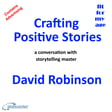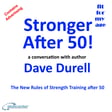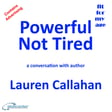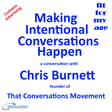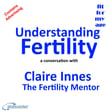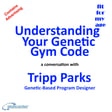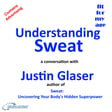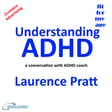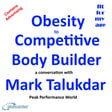
Make Success Inevitable - a conversation with Ryan Christensen
Ryan Christensen is the author of Winner Peace: How to End Inner Conflict and Make Success Inevitable. A book in which he explores how high achievers in all areas of life strive to be successful while at the same time searching for meaning in their lives.
Ryan knew from an early age that the way he experienced the world was different. He didn’t discover why until he was almost fifty years old. Ryan still had a successful career, but the challenges of being different finally got the better of him.
In this episode of the Abeceder podcast Fit For My Age Ryan explains to host Michael Millward how he finally learnt how to manage his interactions with the world. This includes the important role played by Batman in the process.
You will undoubtedly hear something that resonates with your own life and wish that you had heard this episode of Fit For My Age years ago.
Audience Offers
Proactive Positive Ageing.
It is always a good idea to know the risks early so that you can take appropriate actions to maintain good health, that is why we recommend The Annual Health Test from York Test.
York Test provides an Annual Health Test. An experienced phlebotomist will complete a full blood draw at your home or workplace. Hospital standard tests covering 39 different health markers are carried out in a UKAS-accredited and CQC-compliant laboratory.
A Personal Wellness Hub gives access your easy-to-understand results and guidance to help you make effective lifestyle changes anytime via your secure, personal Wellness Hub account.
Visit York Test and use this discount code AGE25.
Fit For My Age is made on Zencastr, because Zencastr is the all-in-one podcasting platform, that really does make creating content so easy.
If you would like to try podcasting using Zencastr visit zencastr.com/pricing and use our offer code ABECEDER.
Travel Members of the Ultimate Travel Club enjoy travelling at trade prices on flights, trains, hotels, holidays and so many other travel related purchases. Use the link to access discounted membership.
Find out more about both Michael Millward and Ryan Christensen at Abeceder.co.uk.
Matchmaker.fm If you are a podcaster looking for interesting guests or if like Ryan, you have something interesting to say Matchmaker.fm is where great hosts and great guests are matched and great podcasts are hatched. Use our offer code MILW10 for a discount on membership.
Being a Guest
If you would like to be a guest on Fit For My Age, please contact using the link at Abeceder.co.uk.
We recommend the podcasting guest training programmes available from Work Place Learning Centre.
We appreciate every like, download, and subscriber.
Thank you for listening.
